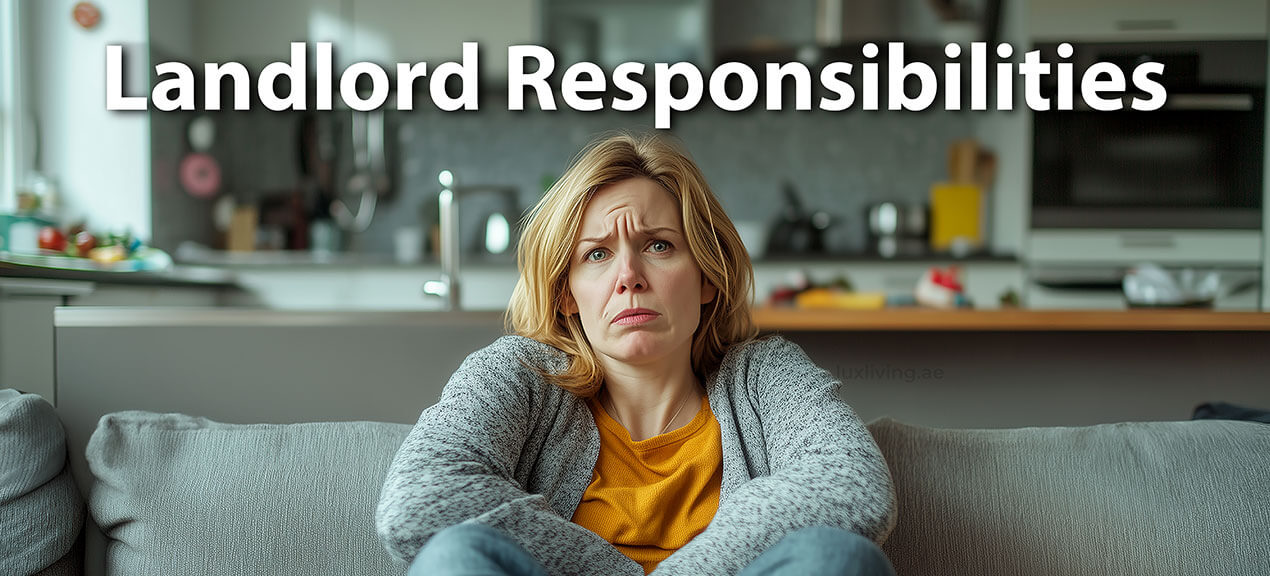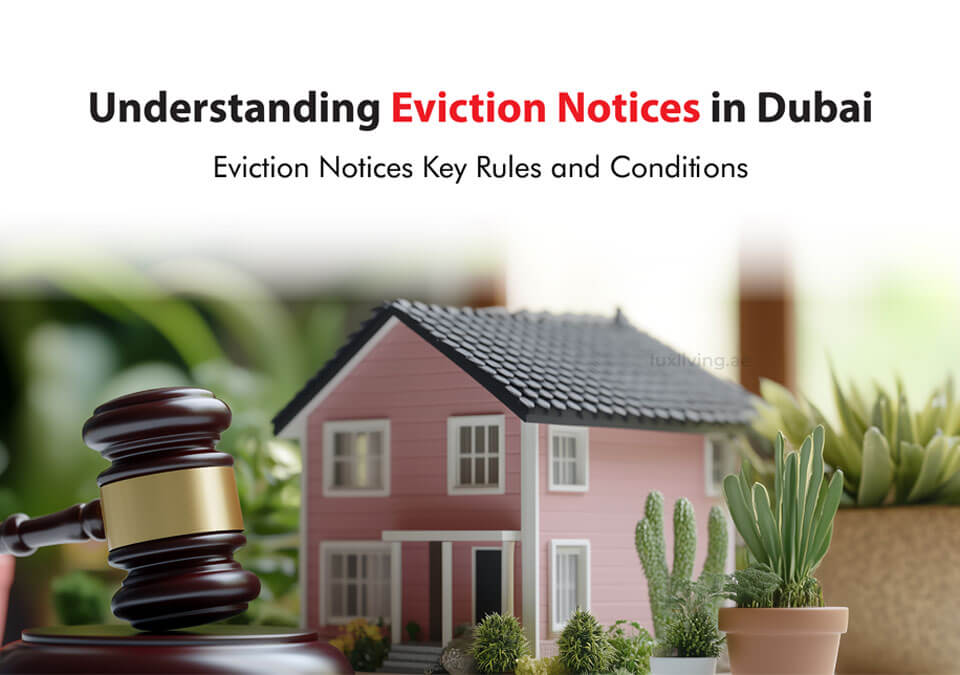
Eviction is a complex issue in Dubai’s rental market. It is governed by strict regulations designed to protect the rights of both landlords and tenants. Eviction notice in Dubai can only be issued under specific conditions, ensuring fairness and transparency in landlord-tenant relationships. This blog will cover all the main scenarios. In which a landlord can evict a tenant, outline the key responsibilities of landlords, and the rules they must follow.
When Can the Landlord Issue Eviction Notice in Dubai?
In Dubai, landlords cannot randomly evict tenants. The law identifies certain conditions under which eviction is acceptable, both during the contract period and upon its expiry. Here are the primary scenarios:
- Non-Payment of Rent
If a tenant fails to pay rent, the landlord can issue an eviction notice in Dubai. Landlord must give the tenant a 30-day period to settle the payment. If the tenant does not clear the dues within this time frame. Then the landlord is legally permitted to proceed with an eviction. This procedure ensures that tenants are given adequate notice and an opportunity to resolve any payment issues before facing an eviction.
- Illegal Use or Breach of Contract
A landlord can issue eviction notice in Dubai if the tenant uses the property for illegal activities or violates public order or morals. The landlord may evict the tenant if they use the property for any purpose other than what was agreed upon in the lease contract. Additionally, if the tenant sublets the property without written approval from the landlord, this also constitutes grounds for eviction. However, landlords must provide sufficient evidence to support these claims. And the tenant will be granted an opportunity to rectify the situation within 30 days of receiving the notice.
- Property Renovation or Personal Use
Upon the lease contract’s expiry, a landlord may issue an eviction notice in Dubai. If they intend to conduct major renovations or demolish the property for reconstruction. They can also evict the tenant if they wish to use the property for personal or immediate family use. In these cases, landlords must provide the tenant with a 12-month notice period. The landlord must send this notice through a notary public or registered post, explaining the reasons for eviction. Furthermore, after such an eviction. The landlord cannot re-rent the property for at least two years (for residential properties) or three years (for non-residential properties). This clause prevents landlords from using renovation or personal use as an excuse for an unplanned eviction.

Landlord Responsibilities: What They Can and Cannot Do in Issuing Eviction Notice in Dubai
Dubai’s Rental Law outlines specific guidelines for landlords to adhere to when seeking eviction. Understanding these rules is important for both landlords and tenants:
Landlords Can:
- Issue Eviction Notices: A landlord can issue an eviction notice in Dubai under the lawful conditions mentioned above. The notice must be in writing. It must providing the tenant a reasonable period (typically 30 days) to rectify the situation or vacate the property.
- Terminate the Contract on Legitimate Grounds: If a tenant breaches the lease terms, landlords have the right to terminate the contract. They can also terminate the contract if the property requires comprehensive maintenance. However, you must execute this in accordance with the proper legal procedures.
- Eviction for Personal or Family Use: A landlord can issue eviction notice in Dubai to use the property for their own residence or that of an immediate family member. However, they must notify the tenant at least 12 months before the contract’s expiry.
Landlords Cannot:
- Eviction Without a Valid Reason: Eviction notice in Dubai without a valid legal reason or proper notice are strictly forbidden. The law ensures tenants’ security, allowing them to occupy the property until the lease term ends unless they have breached contract terms.
- Rent the Property Immediately After Eviction: If a landlord issues an eviction notice in Dubai to use the property for personal use or to conduct major renovations, they are not allowed to re-rent the property immediately. Residential properties must wait at least two years, and non-residential properties must wait three years. This rule prevents landlords from misusing the provision for evictions.
- Increase Rent Promptly: The landlord cannot increase the rent before two years have passed since the original rental agreement was established. Both parties must agree upon any rent increase within this period. Additionally, rent increases must comply with the Dubai Rent Index to prevent absurd hikes.
Important Details for Tenants to Note Regarding Eviction Notice in Dubai
While the law provides certain protections to tenants, they also have responsibilities to uphold. Here are key details tenants should be aware of:
- Maintenance and Care: Tenants must maintain the property and not make any structural changes without the landlord’s written consent. Failure to do so may result in an eviction notice in Dubai.
- Subleasing: The tenant can sublease only after obtaining written permission from the landlord. If a tenant sublets the property without permission, the landlord can issue an eviction notice in Dubai for both the tenant and the subtenant.
- Right to Stay During the Contract: A tenant has the right to stay in the property for the entire lease term unless they breach specific clauses outlined in the contract. If the landlord sells the property, the new owner must honor the existing lease until its expiration.

Navigating the Eviction Process in Dubai
Dubai law regulates the eviction process. If a landlord seeks eviction for reasons outlined in the law, they must follow a systematic approach:
- Filing a Dispute: If the tenant fails to comply with the eviction notice, the landlord can file a dispute with the Rental Disputes Settlement Centre (RDSC). The RDSC will then examine the case based on the evidence provided by both parties.
- Eviction Order: The RDSC will issue an eviction order if the landlord’s case is deemed valid. The tenant is then legally required to vacate the property as per the RDSC’s judgment.
Conclusion: Know Your Rights and Responsibilities
Dubai law strictly regulates eviction notices to ensure fair treatment for both landlords and tenants. Evictions are not a simple process and can only occur under specific legal conditions. For landlords, it is crucial to understand the legal grounds for eviction, provide proper notice, and follow all defined procedures. Tenants, being aware of their rights and responsibilities can help avoid potential eviction scenarios. For detailed guides on Dubai’s rental rules and regulations, always visit our website. We provide all the important news and guides to help you navigate and resolve your issues in the Dubai real estate market.

